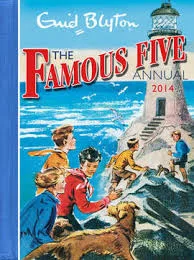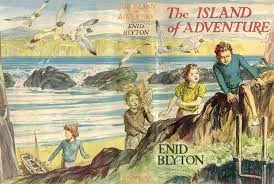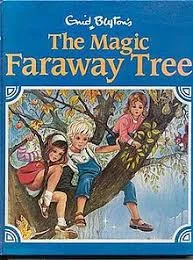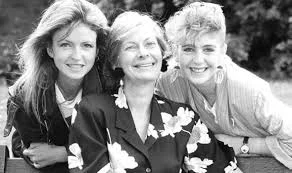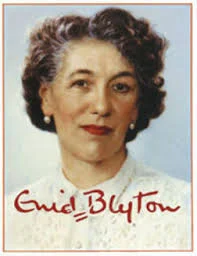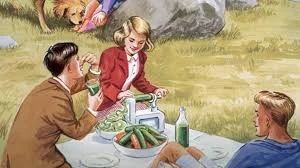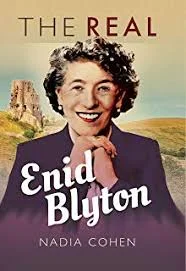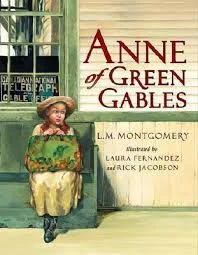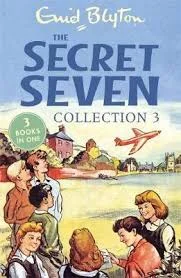Hurrah! Enid Blyton’s Children’s Adventures, Filled With A Healthy Dose Of Sexism And lashings Of Cream.
A few weeks ago I found myself in a charming second - hand bookshop in downtown Vancouver. You know the one; the small doorway that one has to physically push open (complete with tinkling bell) and once inside, the intoxicating aroma of old books that permeate the space.
In my travels down the aisles, I came across the complete hardback series of Enid Blyton's 'Famous Five'. These books, at least fifty years old, their worn covers guarding the pages inside and smelling like old parchment reminded me of my childhood addiction to Ms Blyton's writing.
Blyton was perhaps the original J.K Rowling who, forty years before Harry Potter, had children’s noses permanently stuck in a book. I selected and thumbed through, " Five Run Away Together” and, unashamedly, became engrossed in the story once again. The introduction to each chapter is headed up with a charming, simple pen and ink drawing giving the reader an inkling of what to expect in the next few pages.
I skimmed through the book, remembering the plot line and it was then that I realised that Blyton was a fantasy queen; inventing her childhood or a childhood she never really had or indeed wanted.
Imogen Smallwood, her daughter, in her book, " A childhood at Green Hedges, " (Enid Blyton’s house in the country) portrayed her mother as, and I quote, " A malicious, conniving, manipulative woman, bereft of any maternal qualities whatsoever, who took great delight in bankrupting her first husband and, drove him to drink and an early grave."
Blyton wrote a staggering 800 titles and to date has sold over 600 million books in 92 languages. She is still one of the ten best - selling authors in the U.K. and still sells ( posthumously )over a million Famous Five novels each year!
Intrigued by her ongoing popularity, I did a little research and re- examined the plot lines of the series. My God those kiddies were an adventurous lot and, how come, wherever they went on holidays (always in summer) did crime and mischief stalk them at every turn?
Now, I guess when one of the children, George, a girl who wants to be a boy, has a father (the always absent Uncle Quentin) who is a scientist, always working on ' secret' projects there is always going to be intrigue. George’s parents lived in a rambling old house on the Cornish Coast which came with its own beach and ownership of a small island off shore complete with ruined castle. She has a rotund mother, whose sole purpose seemed to be to be dishing out sandwiches and scones, that always came with lashings of cream.
How could life be anything but fantastical!
That island was always a hideaway for thieves, escaped prisoners, kidnap victims, and a place of mysterious goings on. Perhaps meek and mild Quentin was really head of a Colombian cocaine cartel? The climax of each novel was when the 'lads' Julian (hated him) and Dick would rush off to save the world while the girls stayed behind keeping the flies off the sandwiches.
Blyton's view of girls and women, and their perceived place in the world, perhaps stemmed from her very unhappy marriage to Hugh Alexander Pollock DSO, a military type who worked in publishing and was referred to by the author as, "that shit."
Children never look past the words on a page, and so never worried or indeed cared about the author’s private life. Blyton's genius was in keeping children of varying ages in suspense, enthralled at the fearless antics of their heroes.
Unfortunately, reading it as an adult and parent, the role of boys who always did the 'heavy lifting' leaves much to be desired The lads, protectors of the young ladies, go bravely where no pubescent pre-teenagers have been before.
When, years ago reading the series to our daughters, my partner would reverse the names, meaning it would be George and Ann who would go after the baddies, leaving the boys to ensure that the tent was tidy and fresh ham sandwiches were cut and the soda pop suitably chilled, for when the girls returned.
There is nothing quite like a touch of feminism to ‘balance’ the direction of the story.
And so, as I nostalgically replaced the book back into its appointed slot, I let my hand run over the entire series, standing like sentinels on the dusty shelf, and briefly tried to conjure up the thoughts and feelings that reading the books brought to me as a child.
Unfortunately a vision of every feminist I have had the privilege to know flowed into my head sending the precious memories back onto the shelf along with The Famous Five!

